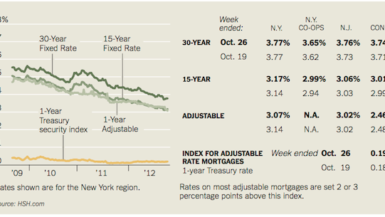An air conditioning capacitor is an electrical component found within the AC system. It serves as a storage device for electrical energy, aiding in the startup of the compressor and fan motors. Capacitors come in various types, including start capacitors that provide extra torque for the compressor during startup and run capacitors that maintain a steady supply of energy to keep the motor running.
How Does an Air Conditioning Capacitor Work?
When you turn on your air conditioner, the capacitor stores electrical energy and releases it to the compressor and fan motors, giving them the initial boost they need to start running. The capacitor continues to supply a continuous flow of energy to keep the motors running smoothly.
Signs of a Faulty Air Conditioning Capacitor
- Weak Airflow: If you notice weak airflow from the vents, it could indicate a faulty capacitor not providing enough power to the motors.
- AC Not Turning On: A failed capacitor may prevent the AC from turning on altogether.
- Strange Noises: Unusual humming or buzzing sounds may suggest a malfunctioning capacitor.
- AC Shuts Off Intermittently: If the air conditioner starts but shuts off after a short while, the capacitor could be the culprit.
Diagnosing Capacitor Problems
If you suspect a faulty capacitor, it’s essential to diagnose the issue accurately. Turn off the power supply, discharge the capacitor, and use a multimeter to check its capacitance. A significantly lower reading than the labeled capacitance indicates a defective capacitor.
Replacing an Air Conditioning Capacitor
Replacing a faulty capacitor is crucial for restoring your air conditioner’s functionality. To replace it:
- Safety First: Always turn off the power and discharge the capacitor before handling.
- Locate the Capacitor: It’s usually found within the outdoor condenser unit or near the indoor blower unit.
- Remove the Capacitor: Disconnect the wiring and remove the faulty capacitor.
- Install the New Capacitor: Connect the wiring to the new capacitor and secure it in place.
DIY vs. Professional Replacement
While some homeowners might consider DIY capacitor replacement, it’s essential to remember that air conditioning systems are complex and sensitive. It’s generally best to leave the replacement to trained HVAC professionals to avoid any potential hazards.
Choosing the Right Replacement Capacitor
When choosing a replacement capacitor, consider the following factors:
- Capacitance Rating: Ensure the new capacitor matches the old one in terms of microfarads (µF).
- Voltage Rating: The replacement capacitor’s voltage rating should be equal to or higher than the original.
- Type of Capacitor: Select the appropriate type, whether it’s a start capacitor or a run capacitor.
Capacitor Ratings Explained
Understanding the ratings of capacitors can be helpful when selecting a replacement:
- Microfarads (µF): Denotes the storage capacity of the capacitor.
- Voltage (V): Indicates the maximum voltage the capacitor can handle.
Common FAQs about Air Conditioning Capacitors
- Q: Can I touch a capacitor? A: No, capacitors can retain an electrical charge even when the power is off, posing a risk of electric shock.
- Q: How long does a capacitor last? A: The lifespan of a capacitor varies but is typically around 10-20 years.
- Q: Can I use a higher-rated capacitor as a replacement? A: It is not recommended, as using a higher-rated capacitor may cause damage to the motor or other components.
- Q: Are there any safety precautions when handling capacitors? A: Always wear protective gear and discharge the capacitor before handling.
- Q: Can a faulty capacitor damage other AC components? A: Yes, a faulty capacitor can lead to stress on other components and potentially cause damage.
Conclusion
Air conditioning capacitors play a vital role in the efficient functioning of your AC system. Understanding their purpose, signs of failure, and replacement options can help you maintain a cool and comfortable home during the hottest days of the year. Remember to prioritize safety and consider seeking professional assistance for any complex AC repairs.





Leave a reply